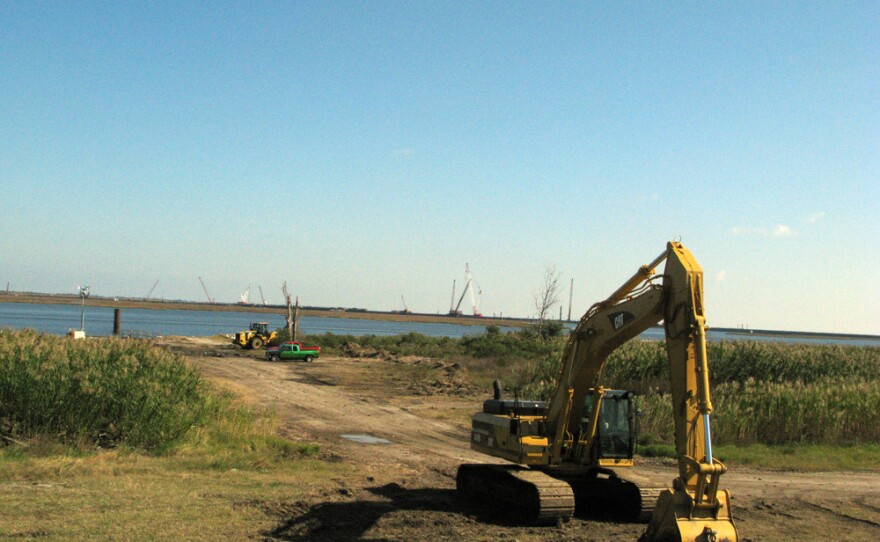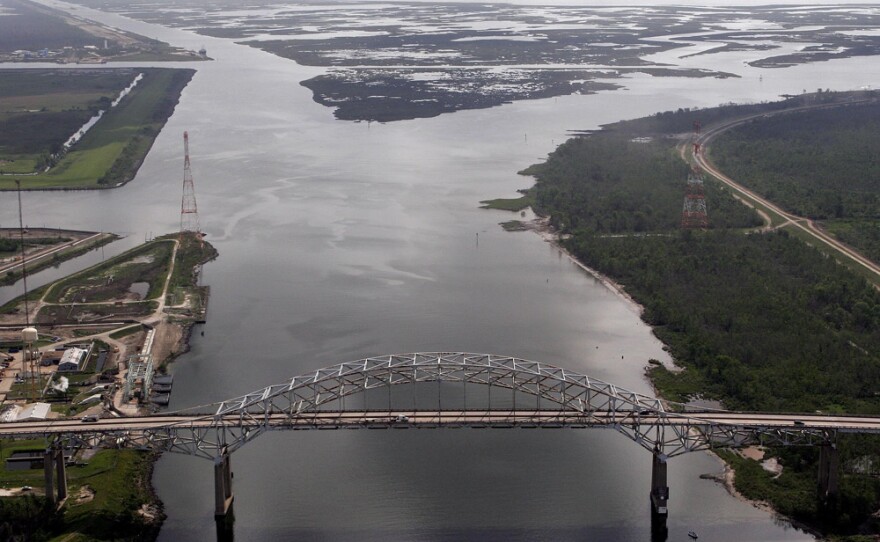In New Orleans, some residents have long said it wasn't a natural disaster that caused the flooding after Hurricane Katrina four years ago — but government neglect.
In a 156-page decision Wednesday, a federal judge gave residents vindication. Judge Stanwood Duval ruled that the U.S. Army Corps of Engineers was responsible for some of the flooding and ordered the government to pay more than $700,000 to five plaintiffs.
That may not sound like much money, but it's the first time the government has been found at fault for Katrina damage. Plaintiffs' attorneys say the ruling opens the door for some 100,000 people and thousands of businesses to sue the government. That could mean billions of dollars in damages.
The lawsuit claimed the Mississippi River-Gulf Outlet, known as MR GO, eroded protective wetlands, and that waves on the 76-mile canal destroyed levees and caused extensive flooding during Hurricane Katrina.
Duval issued a harsh criticism of the Army Corps of Engineers, saying a failure to fulfill its duties resulted in a catastrophic loss of human life and property in unprecedented proportions.
'A Long Overdue Process'
Joseph Bruno, one of the lead attorneys for the plaintiffs, called the decision historic.
"This ruling is incredibly important to the city of New Orleans. Finally, our people are vindicated," he said. "After the flooding, we had to hear about ... victim fault — they should have lived somewhere else; they should have bought flood insurance — and ... now we have a judge who has confirmed that the cause of the flooding was the gross incompetence and neglect of the Corps of Engineers."
The judge said the corps was clearly negligent for failure to maintain and operate the canal properly and ordered in favor of the plaintiffs from St. Bernard Parish and the Lower Ninth Ward. But he found the corps was immune from liability for the flooding in New Orleans East.
Still, plaintiffs' attorney Pierce O'Donnell said Duval's decision "is the first step in a long overdue process of holding the Army Corps accountable for the projects it builds."

A spokesman for the Corps of Engineers said the Justice Department is reviewing the judge's decision and the issues involved are subject to appeal.
The shipping channel opened in the 1960s to provide a shorter route from New Orleans to the Gulf of Mexico. Over the years, the waterway widened from 650 feet to more than 2,000 feet in many places. During Katrina, a wall of water was funneled into the city and overwhelmed the levee system.
A Permanent Barrier
East of New Orleans, at Bayou Bienvenue, spans the channel at the heart of the case. Here, more than a dozen cranes reach into the bright blue sky. Concrete pilings are being driven into the swampy marsh as a permanent barrier is created to protect the area from future storm surges.
"What we hear now is, after the city has been destroyed, we are finally seeing the countermeasures put in place that were needed all along," said Paul Kemp, a wetlands expert and a consultant for the plaintiffs.
Earlier this year, the corps finally agreed to close the shipping channel, but Kemp says it took four decades to address the problems.
"There were 40 years of denials, basically, and we're now, the nation has now arrived to undo the damage that was caused," he said.
Plaintiffs' attorneys said they will go to Washington, D.C., to talk to Congress about funding wetlands restoration, and they want the Obama administration to set up a fund for all Katrina flood victims.
But that won't happen anytime soon, as the case will have to make its way through the federal appeals courts.
Copyright 2022 NPR. To see more, visit https://www.npr.org. 9(MDAzMjM2NDYzMDEyMzc1Njk5NjAxNzY3OQ001))







